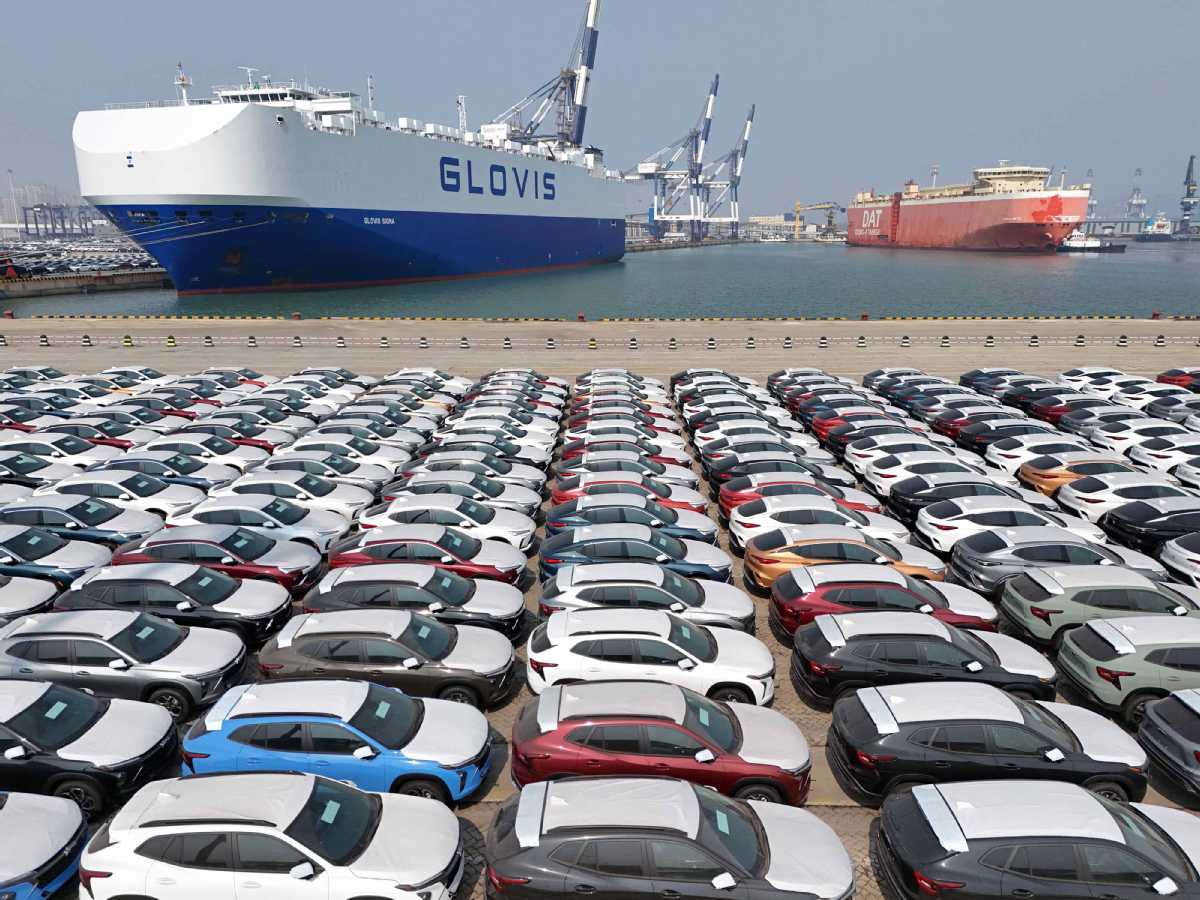Auto experts decry threat of US curbs
American automakers slow to adopt electrification; EV protectionism in air


The United States is threatening to curb China's electric vehicle industry with trade barriers, primarily because US carmakers have been reluctant to switch toward electrification, said industry analysts and executives.
"China is determined to dominate the future of the auto market... I'm not going to let that happen on my watch," said US President Joe Biden in a statement on Thursday.
Roy Lu, an independent auto analyst based in Shanghai, said it is "an act of protectionism", because there are "basically no Chinese passenger EVs at all" in the US.
Lu said General Motors and Ford are reaping good profits on their gasoline models so they have been slow to come up with competitive EVs. Development of new EVs would entail huge investment. EV sales do not promise immediate profits.
Ford reported a record net income at $4.3 billion last year, up from a loss of $2 billion in 2022.GM's net income hit $10.1 billion in the same year, up from $9.9 billion in 2022.
Ford has only two electric models in China and GM's Buick and Chevrolet combined has four, according to their websites, although the NEV competition has been fierce in the Chinese market. In contrast, 10-year-old Chinese startup Nio has eight.
Last year, 9.5 million NEVs, including EVs and plug-in hybrids, were sold in China, accounting for 31.6 percent of total vehicle deliveries in the country, according to the China Association of Automobile Manufacturers.
Mathias Miedreich, chief executive of Umicore, one of the world's biggest battery materials manufacturers, said sales of Chinese electric cars were surging in contrast to the scene in the US due to better performance and affordability.
"They are simply good cars and people buy them," he said in an interview with the Financial Times, referring to Chinese vehicles. "The American ones (producers) seem to struggle to bring good electric vehicles (to market)."
The US threat to impose curbs on Chinese EV industry came after the European Union started an anti-subsidy investigation in October against Chinese automakers. The United Kingdom is reportedly considering a similar probe.
Yale Zhang, managing director of consultancy Automotive Foresight, said the European auto sector has been halfhearted about electrification.
Mercedes said it will spruce up combustion engine models. It expects sales of electrified vehicles, including hybrids, to account for up to 50 percent of the total by 2030, five years later than its forecast in 2021.
"But Chinese carmakers and suppliers have been steadfast in their electrification despite difficulties over the past years and have built a sound industry chain covering all major components from batteries to electric motors," said Zhang.
Volkswagen, Europe's largest carmaker, said in December that its development time in China is one-third less than in Germany. One of the reasons for that is, local suppliers can be involved from the very start.
The first-mover advantage and innovation as a result of competition are helping Chinese NEV sales rise both in China and overseas.
Last year, over 1.2 million units were exported, of which a quarter were from Tesla's Shanghai plant. But there is no "dumping" to talk about, as Chinese NEVs are usually priced higher in overseas markets than in China, said Zhang.
One example is BYD's Atto 3, which is priced from 37,990 euros ($41,211), according to Automotive News Europe. In China, the model has a price tag from 119,800 yuan ($16,642).
Zhang also hailed the role of Tesla in the development of China's NEV industry, saying that it has stimulated Chinese carmakers to produce competitive models and prompted Chinese car buyers to consider EVs seriously.
While the European authorities are considering unfair measures, some European carmakers have partnered with Chinese peers.
Volkswagen said it is co-developing two models with Chinese startup Xpeng and they will hit the market in 2026.
Stellantis, which owns brands from Maserati to Peugeot, has acquired a 20 percent stake in Leapmotor, another Chinese startup. The European car giant is also planning to produce and sell Leapmotor vehicles in overseas markets.




































